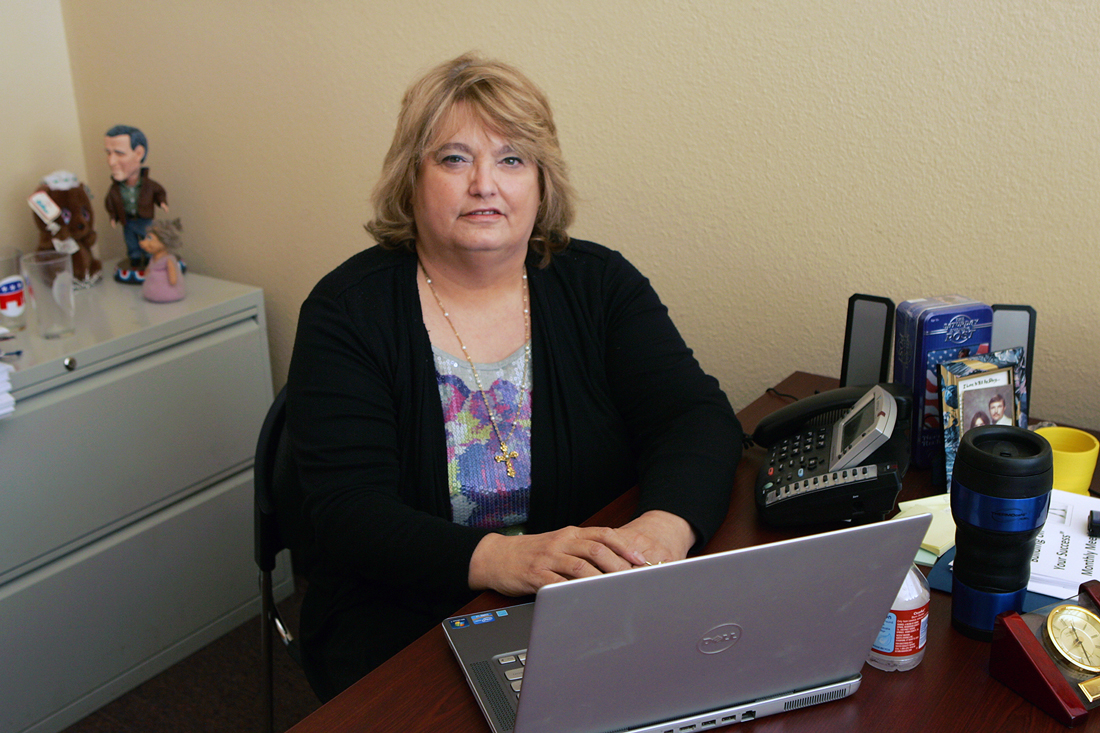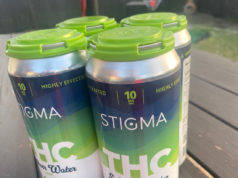Melvin Qualls’ story is unfortunately an all-too-common one.
His mother overdosed on drugs when he was five, and his dad was a drug addict as well. His grandmother took care of him until her death when he was a teenager, then an aunt took him in. One day at school, a violent friend pulled a gun during a fight. The friend fired into a crowd and killed another student. When the shooter fled, so did Qualls — in the same car. At 17, Qualls was tried as an adult, convicted of being an accessory to murder, and sentenced to 20 years in prison.
Qualls made the most of his time behind bars. He became the youngest person in the history of the Texas criminal justice system to get his GED and went on to earn a bachelor’s degree in sociology.
Released in 2011 after serving his sentence, he found himself facing a world that had undergone vast changes while he was away. He started looking for a job, but, for starters, had no idea how to use the internet — it hadn’t existed in 1991, when he was locked up.
“I was completely lost with technology when I got home,” he said.
Qualls’ parole officer told him about a different kind of job placement program and encouraged him to apply. His life changed when he walked through the doors of a storefront in a ramshackle strip mall on Fort Worth’s East Side. Inside were the offices of Next Step, an innovative job placement program that deals exclusively with newly released ex-convicts.
The program, created by Texas Workforce Solutions and funded by a five-year grant from the U.S. Department of Labor, is unique: It helps ex-cons get jobs and pays their salary and workman’s compensation insurance for the first 60 days of their employment, then pays half the freight for the next 60 days.
So far the program has served more than 500 people. More than 80 percent of them have moved into unsubsidized jobs at the end of the program, and most of them have stayed out of jail. The recidivism rate among Next Step participants is 7 percent, compared to the national average of 44 percent for those in other programs.
Director Debby Kratky said Next Step isn’t just a way to provide free labor to local companies. The selection and vetting process for participants is painstaking. Only half of those who apply are accepted into the program. Once in, the ex-cons are put through what Kratky called “a two-week employment boot camp.”
“It’s extremely intensive,” she said. “They learn a whole lot about the job market and themselves, and they learn about how to talk about their offense.
“That’s usually the hardest thing for them,” she added. “That can ruin the [job] interview if they haven’t learned how to talk about their criminal background.”
Sly Calhoun agreed that learning to talk about his crime was difficult.
“They really help you to deal with that,” he said.
Calhoun cuts an imposing figure. The 39-year-old is built like a linebacker, though he’s quick to smile and has an easygoing nature. It wasn’t that long ago that he was serving time for robbery.
He too turned to Next Step after coming up empty in his search for a job. One of the benefits of the program, he said, is that the counselors are there for support beyond the two weeks of training.
“It’s good to know that there are people in your corner for when you do hit a bump in a road,” he said. “If they can’t help you, they can direct you to someone who can. These people really care about their customers.”
Kratky said that her “customers” stay in the program for 18 months so the administrators can shepherd them through the process and get them adjusted to their new surroundings.
“If you walk away from them too soon, they don’t do as well,” she said. “They know when they walk in the door that someone will be with them for 18 months.”
Another unique aspect of the program is that all of its participants go through an assessment process. The coaches use a tool developed by Gallup, called Strength Finder 2.0, which has been used in more than 8 million assessments by Fortune 500 companies and other employers.
Paul Allen, a developer for Gallup, said that he was thrilled at the way the Next Step administrators are using the online assessment tool.
“They have found a way to get into [the ex-con’s] head: ‘You have hope and you have strengths,’ which is a message they probably haven’t heard in a while.
“I’m so proud of those five coaches and administrators in Tarrant County,” Allen said. “I really love what they are doing. I was blown away by their ability to use a combination of tools to make an impact and help people turn their lives around.”
Kratky said the program also uses a battery of other tests, including one developed by the Texas Christian University criminal justice department that identifies the triggers that might cause ex-cons to revert to the kind of thinking that landed them behind bars in the first place.
“At the core of the classes we use a very wide range of assessment tools,” she said “Some of them look at cognitive behavior, because we found our guys have issues with critical thinking.
“We call it ‘developing human capital,’ ” she said. “We let them know that every person has assets and deficits in their human capital portfolio, and they’ve got to understand their assets and work around their deficits. For some of these guys, they never knew they had strengths, or forgot them. We spend a lot of time helping them remember.”
The testing also helps determine which jobs a person should apply for. For example, if the tests determine that a person has a problem in making decisions, the program will not place the customer in a job where decision-making is important.
Kratky said that the program targets those who have been out of prison for 120 days or less. She’s seen people who have served up to 40 years complete the program and find jobs.
Qualls is now a supervisor at Southstar, a food distributor for Kroger, a job he’s held for more than a year. He wants to be an example for others, to show them that a prison sentence, even a long one, isn’t reason enough to give up on life.
In prison, “I tried to associate myself with people trying to get out,” he said. “I came up for parole year after year, and I couldn’t get out. But I knew that I still had a lot of my life left.”
He credits Next Step with helping him realize the dream he clung to for 20 years — building a normal life.
“It helped me tremendously,” he said. “It helped me get a job and made me more stable in my everyday life.”













Refreshing to read, that there is hope among us, and right here in our city. Too often lives are crushed by circumstance, the pure dumb luck of innocents, the failure of families resulting in negative and poor modeling for our youth. When ‘criminals’ are released where do they go, how do they re-enter a society that has passed them by, and barely gives anyone without the dollar any time of day. I applaud this program. Thank you. Also, this program, seeing success ‘on the inside’ is something to make note of as well…
http://tprf.org/en/component/content/article/131-peace-education-program/417-peace-education-applauded-san-antonio
Love this piece! I did not know this program existed and it’s funded by the government. Excellent news! There are so many obstacles for people fresh out of prison. Programs like this one will definitely make a positive impact on recidivism.
Nice to hear good news. The only way to fight recidivism is to give these men and women a chance and a job.
Thank you.